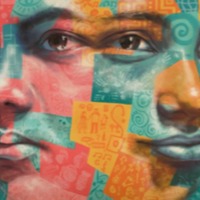
Alice
There are an estimated 403,000 people living in modern slavery in the United States (GSI 2018). Sex trafficking exists throughout the country. Traffickers use violence, threats, lies, debt bondage and other forms of coercion to compel adults and children to engage in commercial sex acts against their will. The situations that sex trafficking victims face vary, many victims become romantically involved with someone who then forces them into prostitution. Others are lured with false promises of a job, and some are forced to sell sex by members of their own families. Victims of sex trafficking include both foreign nationals and US citizens, with women making up the majority of those trafficked for the purposes of commercial sexual exploitation. In 2015, the most reported venues/industries for sex trafficking included commercial-front brothels, hotel/motel-based trafficking, online advertisements with unknown locations, residential brothels, and street-based sex trafficking. Alice was trafficked into commercial sexual exploitation in 1999 in Nebraska. She talks about the importance of education for the prevention of trafficking and teaching police and medical staff how to treat people who have been trafficked. Alice also stresses the importance of safe houses, ensuring women who have been trafficked have a safe place to go and available support.
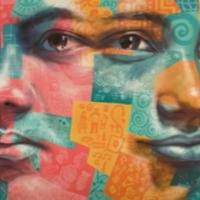
Tammy
There are an estimated 403,000 people living in modern slavery in the United States (GSI 2018). Sex trafficking exists throughout the country. Traffickers use violence, threats, lies, debt bondage and other forms of coercion to compel adults and children to engage in commercial sex acts against their will. The situations that sex trafficking victims face vary, many victims become romantically involved with someone who then forces them into prostitution. Others are lured with false promises of a job, and some are forced to sell sex by members of their own families. Victims of sex trafficking include both foreign nationals and US citizens, with women making up the majority of those trafficked for the purposes of commercial sexual exploitation. In 2015, the most reported venues/industries for sex trafficking included commercial-front brothels, hotel/motel-based trafficking, online advertisements with unknown locations, residential brothels, and street-based sex trafficking. Tammy was trafficked into prostitution in the state of Nebraska. Here, Tammy draws on her own experience to suggest ways to support women after they have escaped their trafficking situation. She highlights the lack of access to shelter, financial support and education. She also underlines the importance of rehabilitations of traffickers before they are released from jail.
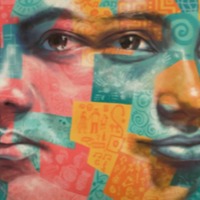
Mabel B
There are an estimated 403,000 people living in modern slavery in the United States (GSI 2018). Sex trafficking exists throughout the country. Traffickers use violence, threats, lies, debt bondage and other forms of coercion to compel adults and children to engage in commercial sex acts against their will. The situations that sex trafficking victims face vary, many victims become romantically involved with someone who then forces them into prostitution. Others are lured with false promises of a job, and some are forced to sell sex by members of their own families. Victims of sex trafficking include both foreign nationals and US citizens, with women making up the majority of those trafficked for the purposes of commercial sexual exploitation. In 2015, the most reported venues/industries for sex trafficking included commercial-front brothels, hotel/motel-based trafficking, online advertisements with unknown locations, residential brothels, and street-based sex trafficking. Mabel was trafficked into forced prostitution in the state of Nebraska. She draws on her experience to highlight the necessity of education and early intervention in the prevention of trafficking. Mabel underlines the importance of going beyond rescue, calling for allying and partnering with survivors to support them in their lives after trafficking.
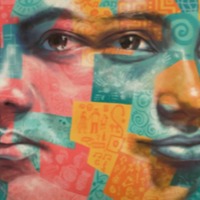
Mary B
There are an estimated 136,000 people living on conditions of modern slavery in the United Kingdom (GSI 2018). According to the 2017 annual figures provided by the National Crime Agency, 5, 145 potential victims of modern slavery were referred through the National Referral Mechanism in 2017, of whom 2,454 were female, 2688 were male and 3 were transgender, with 41% of all referrals being children at the time of exploitation. People are subjected to slavery in the UK in the form of domestic servitude, labour exploitation, organ harvesting and sexual exploitation, with the largest number of potential victims originating from Albania, China, Vietnam and Nigeria. This data however does not consider the unknown numbers of victims that are not reported. “Mary” came to the UK with an overseas domestic worker visa. Her passport was taken by her employer. She escaped after 12 weeks. By the time she entered the National Referral Mechanism (NRM)—the UK’s framework for identifying and referring potential victims of modern slavery and ensuring they receive the appropriate support—her visa had expired and she did not have the right to work. Domestic servitude accounted for 7% of the reported exploitation type of potential victims referred to the NRM in 2018, and 9% of the total potential victims indicated by contacts to the Modern Slavery Helpline in 2018. The narrative is from her oral evidence to the Home Affairs Committee’s Modern Slavery Inquiry on November 6, 2018, in a private closed-door session with three MPs. Her name has been changed and identifying details have been redacted, including her home country, the year she came to the UK, and the name of a charity.
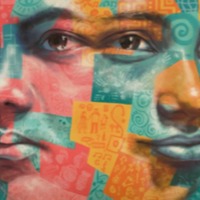
Tenneh
Female genital mutilation (FGM) remains widespread across many developing countries and has affected an estimated 140 million girls across Africa and parts of the Middle East and Asia. In Sierra Leone it is considered a traditional practice as part of initiation in to secret women’s societies known as Bondo, with nine out of ten women and girls having been cut. Membership marks a girls’ transition into womanhood and they receive training in their roles as wives and mothers. While FGM is therefore seen as a societal norm, it has internationally been considered a violation of human rights. As a result, the country faces pressure to pass laws against its practice. Tenneh was subjected to female genital mutilation at the age of 8 years old in Sierra Leone in order to prepare her for marriage.